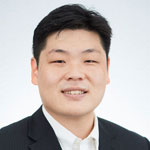Voices from Asia: Justin Joon Lee

When I teach systematic theology, I typically begin my course with a survey question: “What comes to mind when you hear the word ‘theology’?” Answers vary broadly from more standard definitions like “the study of God” to related terms like “truth” or “pastor.” But without fail, many students respond with descriptors like “challenging,” “complex,” or “philosophical.” While there are no doubt Christians who find theology interesting and practical, I find that more people, even seminarians, are under the impression that theology is difficult, abstract, and irrelevant. This is why I ask this question – to demonstrate to students that theology can actually be engaging and applicable, despite whatever negative experiences they might have had.
The simple fact of being a Christian means that one holds to a set of theological beliefs. This set of theological beliefs ultimately forms a system of some sort, that is, a systematic theology. While we may equate systematic theology with complex systems developed by names like Aquinas, Calvin, or Barth, theology does not only belong to trained professionals. As Charles Ryrie has said,
“Theology is for everyone. Indeed, everyone needs to be a theologian. In reality, everyone is a theologian – of one sort or another.”1
Theology is something that all Christians engage in, whether we are aware of it or not. The problem is that there is a great deal of bad theology around us, teaching and practice that is neither biblical nor Christlike.
One of the big issues that the Asian church faces is determining what good and orthodox theology looks like in Asian contexts. How do we find the balance between logical rigor and praxis, between conformity to tradition and current relevance, and between biblicity and contextuality? This is why the study of theology, done well, is absolutely necessary in Asia.
On the one hand, Asian churches must more intentionally tap into the theological resources of the past. We possess a 2000-year-old tradition in which people much smarter than ourselves have grappled with very important theological issues. On the other hand, the study of theology cannot be limited to ancient Greek, Latin, or German texts, or to the mastery of philosophical concepts.
Theology must also be contextually relevant, addressing current local issues and highlighting the importance of local cultures in doing theology going forward. In this, Andrew Walls and Lamin Sanneh have been extremely influential. Both have highlighted that a unique characteristic of Christianity has been the translation of the Gospel from one cultural context to another throughout the church’s history as part of its missional character. This also applies to theology, which can be understood as the collection of the thoughts of the saints across time and space, wrestling with how to make sense of Scripture and their faith in light of the issues they faced.
Theologians can serve the church by looking to apply the wisdom of the past to inform today’s decisions, where relevant. Contextual theologians (and missiologists) serve the church by studying the church and the world in its current cultural, social, and political contexts to better understand and minister to it. As we do, the truth of Scripture and the wisdom of tradition can be applied well and effectively. What we need, then, is not less theology but better theology.
This leads us to the second issue, the question of how the Asian church can help theologians. One of the challenges facing theology in the modern age is the rift that has formed between the church and the academy. When the idea of theology as an abstract and difficult philosophical discipline is reinforced, the church does not see the importance of formal theological education. What good is it if our pastors gain a great deal of head knowledge but are unable to minister to their own people? The idea of “seminary as a cemetery” is often a real danger!
But such issues can be avoided if we have a right understanding of what theology is. Theology is more than mastery of complex systems and ideas. It is also a reflection on where and how God is moving in our current age and in our past. One thing the Asian church can do better is to look to the theological character of its own traditions. By this, I mean not only denominations and traditions, e.g., Reformed, Baptist, Methodist, Pentecostal, etc. Instead, I mean the specific work of God in establishing these churches in their unique contexts, recognizing how our own local traditions have made sense of their faith in light of the world around them.
For example, how have persecuted churches around Asia reflected on God and found comfort in who he is in light of their difficult circumstances? How have diaspora Asians in differing national and linguistic contexts reconciled the issue of faith and culture, seen in the establishment of their own traditions of worship or mission? How are Brethren or Anglican churches different from their Western counterparts, and how do they reflect God’s unique work in their Asian contexts? This is what practitioners call “lived theology”—a theology reflected in the life and practices of congregations.
One way that churches can support theologians, besides identifying and supporting prospective young scholars, is to partner with theologians to work on projects that are both intellectually engaging and contextually relevant. In much of the Asian church, there is a great need to view local church traditions and to engage with the current struggles of the church theologically.
By encouraging scholars to ask important “why” and “how” questions, churches can utilize the resources that theologians possess and grow a greater theological self-understanding that they need. Practically speaking, this might look like an in-depth study of a local church history, lived theology projects, or seminars and focus groups on current and contextual issues. Such work can bridge the gap between church and academy and demonstrate how theology is important to the life of the church.
- 1 Charles Ryrie, Basic Theology: A Popular Systematic Guide to Understanding Biblical Truth (Chicago: Moody Publishers, 1999), ix.

